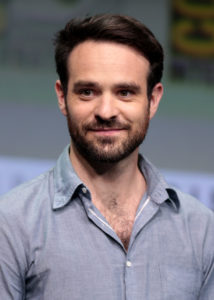 Dropping at midnight Pacific Time on October 19th, the third season of the first of Netflix’s Marvel series’ is a pure joy to watch. Picking up where The Defenders left off, with Matt Murdock (Charlie Cox), Daredevil/The Devil of Hell’s Kitchen, in New York City in the basement of a church, recovering from his miraculous survival the explosion of Midland Circle and the dragon fossils beneath it. What comes next is Matt struggling with his faith, his identity, and how to exist in the world, either as Murdock, or as Daredevil. Meanwhile, Wilson Fisk (Vincent D’Onofrio) puts a plan into action that would bring him and his beloved Vanessa (Ayelet Zurer) together again, as Foggy (Elden Henson) and Karen (Deborah Ann Woll) work to stop him.
Dropping at midnight Pacific Time on October 19th, the third season of the first of Netflix’s Marvel series’ is a pure joy to watch. Picking up where The Defenders left off, with Matt Murdock (Charlie Cox), Daredevil/The Devil of Hell’s Kitchen, in New York City in the basement of a church, recovering from his miraculous survival the explosion of Midland Circle and the dragon fossils beneath it. What comes next is Matt struggling with his faith, his identity, and how to exist in the world, either as Murdock, or as Daredevil. Meanwhile, Wilson Fisk (Vincent D’Onofrio) puts a plan into action that would bring him and his beloved Vanessa (Ayelet Zurer) together again, as Foggy (Elden Henson) and Karen (Deborah Ann Woll) work to stop him.
Cox is amazing in the role of Daredevil and it shows most in this season, in how he struggles with his faith, living in a world where such terrible things have happened to him but still wanting to believe in a God who has a plan for him. But that goes for the entire cast. Both Foggy and Karen get expanded roles and backstory in this season, stepping up from just sidekicks to real characters in their own right, and Father Lantom (Peter McRobbie) and new character Sister Maggie (Joanne Whalley) as the voice of reason for Matt’s more self-destructive tendencies and a grounding found in his upbringing in a Catholic orphanage.

Charlie Cox by Gage Skidmore
The most interesting thing, I think, is the dichotomy of seeing where season three goes, Matt believing that he can’t be both Matt Murdock, attorney at law, and Daredevil, and opting to be the latter, in relation to how the first half of season two went. After all the talk that he and Punisher (Jon Bernthal) had about how some people just need to be killed, because the system doesn’t work for some people. It would seem, though Castle doesn’t show up in this season, that some of that lesson stuck.
Furthermore, this season introduces us to another classic Daredevil villain, Bullseye, though he isn’t called that during the season, in FBI agent Benjamin Poindexter (Wilson Bethel). We watch his corruption from a law enforcement officer trying to do everything he can to be a good person to an assassin who gives into his darkest urges under the thumb of the Kingpin. No one escapes the dirtying effects of being in the sights of Fisk, though, and before the end of the season, nearly all of the characters muddy themselves because of him.
In giving us a Kingpin with very human motivations, we avoid the evil for evil’s sake trope that is a problem for so many comic book–adapted bad guys. We spend so much time with the good guys that we never get a reason why the bad guys do anything of the things that they do. In showcasing the reason why Wilson Fisk does what he does, he becomes even more grandiose, which allows Daredevil to risk to meet him. After all, a hero is best defined by how they are different from their villain, in my opinion.
The new characters in this season, like Poindexter and FBI Special Agent Rahul “Ray” Nadeem (Jay Ali), are incredibly deep for having so much less screentime, when compared to the other characters in the show. It also is nice to see, in an otherwise pretty white cast, to see a person of color in such an important role for this season.
All in all, Daredevil season three does what all good television seasons do, it elaborates on what has happened before while developing all of the characters on their roster, not just the title ones. Everyone gets a spot to grow and their moment in the spotlight. Everyone completes an arc in this season, and we end at a place that makes me want to see what comes next.
David Castro is a Puetro Rican writer from New York City. He has worked on the upcoming Undead supplement for Chill Third Edition, and is working on launching a Patreon. You can find him on Twitter (@theinkedknight), on Tumblr (thedevilsyouknew), on Facebook (facebook.com/inkstainedstudios), and at davidrcastro.com


